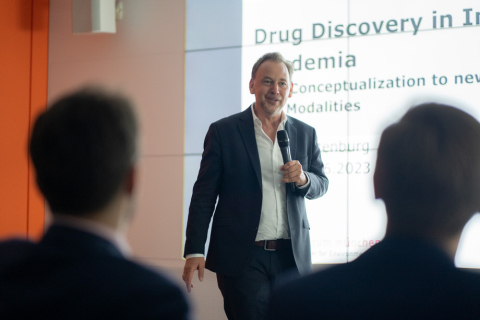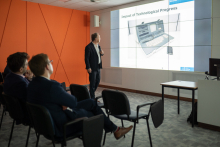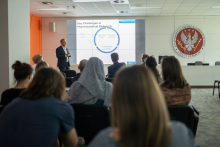Prof. Oliver Plettenburg is a specialist in the search for new substances with potential therapeutic use in humans. He gained his experience both in academia (including Scrips Research Institue, now Helmholtz Zentrum Munchen) and in the research laboratories of pharmaceutical companies (including Sanofi).
Search for new drugs
In the first part of the lecture, Prof. Plettenburg focused on discussing how new drugs are developed and the current trends. He also talked about the pitfalls and hopes associated with this process. As someone with ties to both academia and innovation companies, he shared a lot of valuable advice with the audience.
In search of the perfect harmony of the properties of a new substance
In the next part of the seminar, the speaker discussed in detail the parameters of the molecule of the future drug that determine its success in preclinical studies. These include the strength of interaction with the molecular target, parameters of absorption, distribution, metabolism and pharmacokinetics. In addition, he showed how to modify these properties during the process of so-called "optimization of the molecule" to achieve the desired therapeutic properties in target tissues and organs.
Drug from "idea to industry"
Summing up his speech, Prof. Plettenburg pointed out that in the process of discovering and implementing new drugs, while academia and industry represent different approaches and goals, they often complement each other. He cited the discovery of new molecular targets as an example of the important role of university researchers. He also mentioned examples of cutting-edge therapeutic strategies, such as PROTACS, drug-antibody conjugates or RNA-based drugs, whose discovery and development were made possible by the significant involvement of the academic community.



